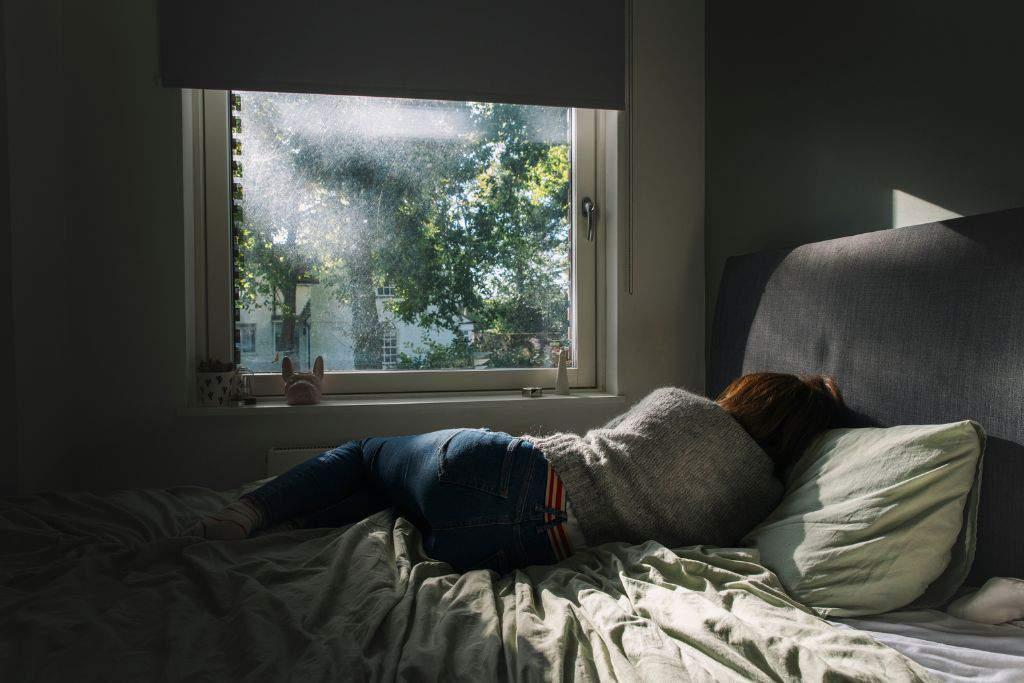Africa-Press – Zimbabwe. Winter’s grip on South Africa is finally loosening, but not without leaving its mark. After weeks of icy-cold mornings, relentless sniffles, and days that seem to end before they’ve begun, the season’s lingering chill can weigh heavier than just the cold.
For many, this time of year brings more than just a longing for summer; it ushers in a fog of fatigue, low mood, and an overwhelming sense of inertia. If you’ve been dismissing these feelings as just another case of “winter blues,” it might be time to reconsider. What feels like a seasonal or mid-year slump could actually be seasonal affective disorder (SAD)—a clinically recognised form of depression tied to winter’s dwindling sunlight.
As the end of winter nears, the lack of sunshine may have disrupted more than just your weekend plans. Reduced daylight can throw off your body’s internal clock, sap serotonin levels, and leave you battling exhaustion, cravings, and even social withdrawal.
The good news? You’re not alone—and there are ways to fight back before spring arrives. Dr Themba Hadebe, Bonitas clinical executive, explains why SAD is more than just a passing mood and how small, intentional steps can help you reclaim your energy and well-being as the season turns.
Believe it or not, sunshine – or the lack thereof may be leading to depression.
“SAD is more than feeling ‘a bit off’ when the sun disappears behind grey skies. It’s a clinically recognised form of depression linked to reduced sunlight exposure, which can disrupt your body’s internal clock (circadian rhythm), affect serotonin and melatonin levels, and ultimately throw off your mood and sleep patterns,” shares Hadebe.
Recognising the difference between winter blues and SAD is the first step to managing the condition.
Who is most likely to experience SAD?
According to the National Institute for Mental Health (NIMH), women and young adults are most likely to experience SAD during the winter months.
Those with a family history of SAD or other mood disorders are at greater risk.
Common symptoms of SAD include:
Understanding and managing SAD
According to the South African Depression and Anxiety Group (SADAG), approximately 2% to 3% of South Africans may experience the disorder. An additional 15% of the population may experience a less severe form.
Recognising the signs of SAD early is essential, shares Hadebe, who also highlighted these pointers for making it through this time:
More sunlight
As simple as it sounds, making time for natural light, even on cold or cloudy days, can significantly boost your mood. Sit near a sunny window, go for a midday walk, or consider using light therapy lamps that mimic sunlight and support your body’s internal clock.
Stay active
The World Health Organisation explains that regular physical activity provides significant physical and mental health benefits. In adults, physical activity contributes to preventing and managing noncommunicable diseases such as cardiovascular diseases, cancer, and diabetes, reduces symptoms of depression and anxiety, enhances brain health, and can improve overall well-being.
Expanding on this, Hadebe shares, “Even a 15-minute stretch, dance break, or walk around the block can help to lift your energy and shift your mindset.
Eating for comfort – and health
Research shows that low levels of vitamin D, which naturally drop during winter, are closely linked to symptoms of depression.
AFDA registered dietitian Mpho Tshukudu suggests nourishing your body with seasonal, nutrient-rich foods. “Produce such as pumpkin, amadumbe, carrots, cabbage, spinach, and legumes are packed with essential nutrients like vitamins A, B, C, fibre, antioxidants, and polyphenols to support your immune system and mood,” she advises.
Call a friend
In South Africa, discussing mental health struggles is often stigmatised. However, opening up can provide clarity and strengthen mental health conversations.
Hadebe encourages, “Talk to someone you trust. Whether it’s a psychologist, a friend, or a support group, sharing your feelings is an empowering first step.”
READ | Middle age and mental health struggles: How to combat loneliness through social wellness
For More News And Analysis About Zimbabwe Follow Africa-Press






